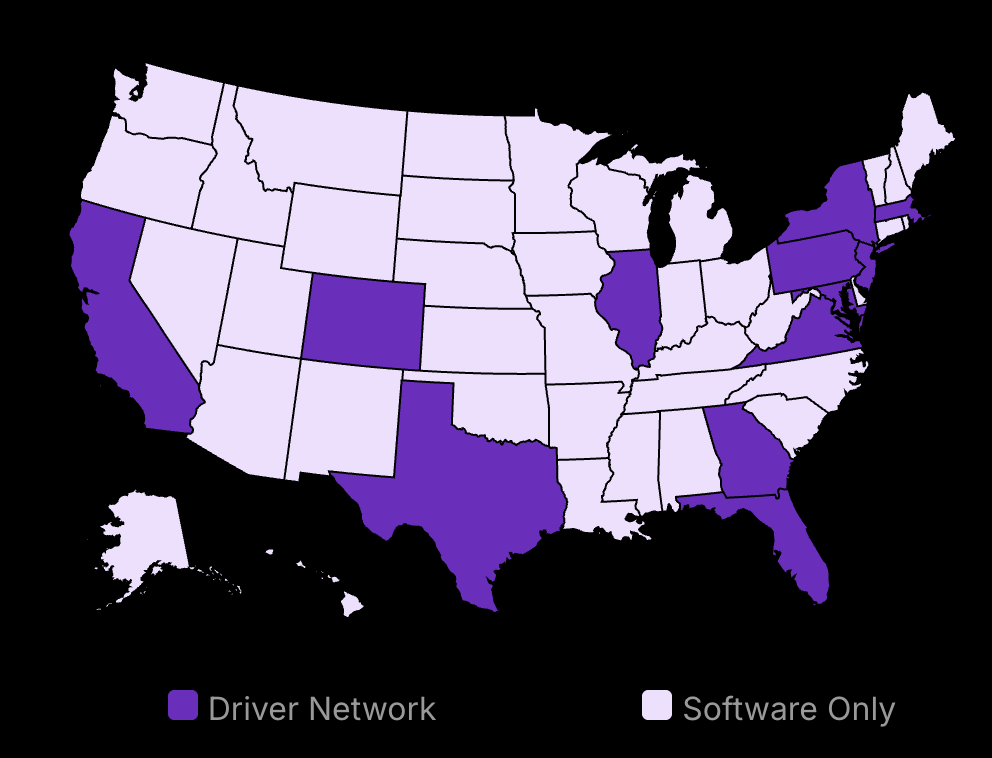It’s the moment of the grand opening – balloons, ribbons, upbeat music– you’ve finally launched your dream catering business. Yet, within a few tumultuous months, your once-thriving venture is merely surviving, gasping for breath amidst a quicksand of unforeseen challenges. Sounds familiar? You’re not alone. It might be related to lack of a solid catering business plan.
A staggering 60% of catering businesses become cautionary tales within their first year, and 80% will continuously have difficulty surpassing challenges in the next five years, which may lead to them closing down.
If laid end to end, the failed dreams and empty kitchens would stretch across the breadth of the United States. Twice. Yet, the difference between failure and foodie fame might be sequestered between the black-and-white lines of a solid business plan.
Keen to turn the tables in your favor? Hop aboard the journey as we unravel why most catering businesses bite the dust and how a robust business plan can be the lifeline they direly need.

Metrobi drivers are rated 4.97 out of 5
Trusted by local businesses for:
- Background-checked professionals
- Specialized in business deliveries
- Same drivers for consistency
- 4.97/5 average delivery rating
Understanding the Common Challenges in the Catering Business
- Identify and confront competition in the catering business.
- Realize the crippling effects of poor financial management.
- Uncover the ramifications of poor marketing and customer service.
High Competition and How It Affects Your Business
Competition in the catering business is ruthless. Within all corners of the market, companies fight tooth and nail to stand out. A minor slip, like a missed deadline or an undercooked roast, can be devastating, therefore operators have to be on their A-game at all times. Metrobi aids these companies by offering delivery services across over 20 US cities, including courier services in Baltimore, ensuring timely and efficient delivery operations.
Delivering superior quality, adhering to deadlines, and offering exceptional customer service make it easier to stand out in such a saturated sector. However, the pitfalls of overlooking competition can be mitigated by partnering with Metrobi, a company that specializes in providing delivery services for caterers.

This visual representation underscores the competitive nature of the industry, emphasizing the importance of market share in establishing a company’s dominance and visibility. It serves as a vivid reminder of the competitive dynamics companies face, where maintaining and growing market share is critical for long-term success. These catering service business plan templates are specifically designed to help you navigate the competitive landscape, ensuring your venture gains the market share necessary for enduring success.
The Impact of Poor Financial Management
A solid grasp of financial management can make or break your catering business plan. Neglecting this element sets your venture on a course for disaster. Be it cash flow management, pricing strategies, or cost control, all aspects of financial management are intertwined and are paramount to your business success. Discover the secrets to crafting a successful catering business plan that ensures profitability. Explore essential financial management tips and strategies on our website to strengthen your business.
A common error many catering enterprises make is not having concrete financial systems in place. This leads to unpredictability and inconsistency, launching the business into a downward spiral. Without a proper handle on financial elements, your business will struggle to stay afloat and eventually be swept away by the sea of competition. Learn how to modify and adapt your catering business strategy as your company expands to ensure sustainability and success in the competitive market.
Why Do Restaurants Fail?
the National Restaurant Association estimates a 30% failure rate in the restaurant industry. In other words, one in three restaurants won’t survive their first year.
The Role of Inadequate Marketing and Customer Service
Marketing is the heartbeat of a catering business plan. It not only puts your business on the map but also informs potential clients about what they can expect. If the marketing efforts miss the mark, you are essentially pushing away potential clientele before they even try your services.
Similarly, poor customer service – long response times, unprofessional staff, and lack of follow-ups, can extinguish any sparks of loyalty or recurring business. The long-term survival of your catering business rests on the satisfaction of your customers and the reputation you build. Gaining the trust and admiration of your first customers can help your venture grow exponentially.
Customer service matters?
75% of U.S. consumers are more likely to be loyal to a brand that delivers a personalized customer experience. (Hyken)
With an understanding of these common challenges, the next step is finding the right solutions. A solid business plan provides the direction and structure to tackle these issues and guides your venture toward its goals. It’s about setting your compass straight before embarking on the big voyage.

Metrobi is transforming catering deliveries
Specialized solutions for catering businesses:
- Catering-trained drivers
- Proper handling equipment
- Peak day delivery support
- 23% average cost reduction
How a Solid Business Plan Can Address These Challenges
- Understand your competition better through market analysis
- Set your financial course with a well-thought-out plan
- Shape your brand through a robust marketing strategy
The Role of Market Analysis in Understanding Competition
A comprehensive market analysis helps you understand not just your competition, but how you fit into the catering landscape. It allows you to identify potential rivals and get a grasp on what they’re doing right – and, more crucially, where they might be missing the mark. By knowing your competitor’s strengths and weaknesses, you can better position your services in a way that sets you apart. This competitive differentiation can be the carving knife that cuts out your place in the catering business.
A Success story
Fork Catering, is a small catering company in a bustling suburban area. When Chef Sarah started her business in 2015, she faced tough competition from big catering chains and traditional event caterers.
Their unique selling point quickly resonated with clients who were seeking fresh, high-quality cuisine with a focus on sustainability.
By clearly defining its USP and aligning its offerings with customer preferences, the company was able to attract a niche market of environmentally conscious consumers and differentiate itself from competitors. Fork Roadhouse saw a significant increase in bookings and positive word-of-mouth referrals, solidifying its position as a leading provider of farm-to-table catering experiences in the region.
Importance of Financial Planning in Managing Costs and Profits
A detailed financial plan is fundamental to anticipating costs, controlling expenditures, and predicting profit margins. It forms the basis of your pricing strategy, guides your decision on capital investments, and translates business goals into financial terms. By providing a clear picture of where your money is coming from and, where it’s going, financial planning enables you to manage your cash flow efficiently. Healthy cash flow is a lifeblood that keeps your catering business afloat, and well-planned finance is its heartbeat.
Financial planning is the #1 priority
A study conducted by SCORE, a nonprofit association dedicated to helping small businesses, found that 30% of small businesses fail due to running out of cash, and 82% of failed businesses experience cash flow problems.
This highlights the importance of precise financial planning, including understanding operational costs, cash flow management, and forecasting, to ensure your catering businesses plan remain profitable and sustainable over time.
How a Marketing Strategy Can Help Attract and Retain Customers
An effective marketing strategy in your business plan is key to expanding your customer base and maintaining customer loyalty. It not only puts your catering service on the map but keeps it there in the minds of potential and repeat customers. From creating a brand image, and building an online presence to executing promotional campaigns and networking, marketing plays an instrumental role. It gets the word out about your business and entices patrons with your culinary offerings.
Looking for Inspiration?
Kogi BBQ:
based in Los Angeles, California, Mouthful Catering differentiated itself in a competitive market by specializing in themed events and offering unique culinary experiences. The company's marketing efforts focused on showcasing its creativity and expertise through visually appealing content on social media platforms, targeted email campaigns, and partnerships with event planners and venues.
Essential Elements of a Successful Catering Business Plan
- Build a detailed profile of your catering services.
- Know your market and competitors.
- Develop an effective marketing and sales strategy.
- Pin down your financial projections and budgeting.
Detailed Description of Your Catering Services
Your catering business won't be like any other
To distinguish yourself in the saturated food and beverage industry, the first step is a detailed definition of your service offerings. Showcase how you intend to stand out, whether that’s via your unique menu, sourcing strategy, or customer service approach. Are you going to cater corporate events or private parties? Will you specialize in a certain cuisine or dietary restriction? Establishing clarity on your services enables you to pinpoint your target market and devise a strong marketing plan.
Comprehensive Market Analysis and Competitive Landscape
Not all markets are the same, and it’s been proven that having a thorough understanding of your industry landscape leads to more success.
Be sure to investigate your competition and understand their strengths and weaknesses. A comprehensive market analysis informs you about current trends, customer expectations, and potential opportunities. Additionally, understanding your competitive landscape can give insights into what other businesses are doing in terms of marketing, pricing, and service – helping you strategize your unique selling proposition.
Clear Marketing and Sales Strategy
In the crowded world of catering, your marketing and sales strategies are what will draw attention and retain customers. The title speaks for itself but let’s drill down a little – Bearing in mind your target audience, develop a strategic plan detailing how you will reach, attract, and retain your desired customer base. Address elements such as your promotional channels, pricing strategy, and customer relationship management. Remember, the foundation of a solid marketing strategy is the understanding of your customer – their needs, preferences, and behaviors.
Financial Projections and Budgeting
The financial side of running a catering business involves more than just menu costs and the pricing of your services, it also means understanding and outlining your operational costs. Successful businesses are those that plan their finances with precision.
This entails making educated guesses about future revenue, costs, and financial performance. These projections and a detailed budget establish guidelines that help manage your business and make informed decisions about growth opportunities. It’s important not to gloss over this, but to delve into the financial realities and projections of your catering business.
Catering Market Projections
The United States catering market size reached a value of approximately USD 72.67 billion in 2023. The market is further expected to grow at a CAGR of 6.2% between 2024 and 2032, reaching a value of USD 124.36 billion by 2032.
The Role of a Business Plan in Ensuring Catering Success
- Orient business decisions with a plan
- Secure funding with a well-executed business plan
- Set and accomplish business goals through a business plan
How a Business Plan Guides Your Decision-making Process
A business plan isn’t simply a document; it serves as your compass in the challenging catering journey. Each component of the plan – market analysis, operational plan, marketing strategies – all factored into your decision-making. Learn how adapting your catering business strategy can chart a path for strategic expansion, cost control, and ensure a prosperous future for your enterprise.
Business decisions, especially in the catering industry, are not a mere dice roll. They require well-thought-out strategic manoeuvers. A business plan gives you the advantage of foresight, limitation awareness, and overall business visibility.
Running a catering business is like conducting an orchestra. Every note, every instrument, needs to harmonize perfectly to create a masterpiece. Your business plan acts as the conductor, guiding each section with precision and foresight.
The thoughtfully developed business plan helps mitigate risks by preparing contingency measures in advance. In the cut-throat catering industry, being a step ahead can be the difference between success and closure.
Business Plan: The Decision-making Compass
Imagine venturing into the wilderness without a map – it’s risky, isn’t it? Does the catering world seem any different without a business plan?
Choosing menu items, setting prices, big-bucks marketing decisions, or even choosing the right time for expansion – none of them are random. When your decisions are grounded with a solid business plan, you’re unlikely to get off-track even during business adversities.
The Role of a Business Plan in Securing Funding
Without funds, ideas remain just that – ideas. Fortunately, presenting a robust business plan to potential investors or banks can unlock the necessary financial resources for your catering business.
Investors and creditors are not looking to fuel aimless ventures. What they desire is a solid plan indicating their investment will cultivate rewarding results. A comprehensive business plan provides them with crucial information about your enterprise and demonstrates your seriousness, business savvy, and commitment to the hospitality business.
Show Me the Money: Convincing Investors with Your Business Plan
A handsomely laid-out business plan serves as a persuasive tool when you’re courting investors. It conveys your confidence in your enterprise’s viability and potential profitability. However, the trick lies in convincing financiers with realistic estimates, well-arrayed financial statements, and scrupulously detailed future projections.
How a Business Plan Helps in Setting and Achieving Business Goals
The first step to achieving a goal is setting it. But, how can you set goals without a broader picture of your business? Think of a business plan as your goal-setter’s playbook.
Your executive summary sets the foundation for your short and long-term goals. From establishing your catering brand in the local market to expanding your culinary venture nationally, the business plan provides a blueprint for your ambitions.
Running a catering business without well-defined goals is like shooting an arrow in the dark. With a business plan, you can set attainable targets, keep track of progress, and ensure that every action aligns with these goals.
Using SMART goals in your business
In catering, SMART goals—specific, measurable, achievable, relevant, and time-bound—are vital. Regular performance tracking and customer feedback help assess progress and make necessary adjustments. Success hinges on quality, innovation, and customer satisfaction. With clear vision and dedication, catering businesses can thrive.
The Blueprint of Success: Business Goals in Catering Industry
In the fast-changing catering industry, standing still equates to moving backward. Persistent growth and regular goal-setting are the tickets to staying in the game. And business plans? They’re your growth map that not only assists in plotting these goals but also in devising strategies to reach them.
Importance of Financial Planning in a Catering Business
- Catering businesses can master cost structure by understanding
- Budgets and financial projections are crucial to success
- Financial planning is the best tool for risk management
Understanding the Cost Structure of a Catering Business
Understanding the cost structure is the cornerstone of a profitable catering business. It helps to ensure the pricing strategy aligns with the costs effectively, thereby ensuring profitability. For instance, it is crucial to account for both direct and indirect costs.
Direct costs include the purchase of food, hiring chefs, and other labor-related expenses while indirect costs encompass rent, utilities, and marketing. A well-oiled understanding of these costs aids in setting competitive prices without compromising on business profitability. Superior comprehension even offers an edge in negotiations with suppliers and venues, creating opportunities for cost-saving. Hence, fully grasping the cost structure promotes healthy margins and aids in business sustainability.
Costs and structures of catering businesses can vary based on:
1. Location:
Urban areas may have higher overhead costs, while rural areas might require more transportation expenses.2. Market Segment:
3. Seasonal Demand:
High-end markets may incur higher costs for premium ingredients and skilled staff, while budget markets focus on cost-effective options.
Fluctuations in demand may lead to adjustments in staffing and costs. 4. Regulations and Taxes:
Different regions may have varying tax rates and regulatory requirements, impacting operating expenses. 5. Ingredient Sourcing:
Access to local suppliers or specialty ingredients can influence costs.
Importance of Budgeting and Financial Projections
Budgeting and financial projections are virtually the scaffolding that supports the business building. Catering businesses involve substantial amounts of variable costs, spurred by fluctuations in customer demands and market conditions. In such a high-volatile environment, budgeting and regular revision of financial projections can help maintain a steady course.
A well-prepared budget can help allocate resources efficiently, manage cash flows, and ensure the business stays afloat even in lean periods. Being proactive with financial projections can facilitate pinpointing any red flags early, thus enabling remedial action. Thus, robust budgeting and financial projections act as the compass guiding the business on its growth trajectory.
How Financial Planning Can Help in Risk Management
Financial planning can serve as the bulwark against uncertainties. Risk is inherent in every catering business venture – wavering consumer preferences, volatile food prices, labor turnover, and more. Well-articulated financial planning can help devise strategies to counter such risks.
By creating a ‘worst-case scenario’ financial plan, one can equip the business to withstand the shocks. Cash reserves accumulated as part of financial planning can be instrumental in these moments. Coupled with insurance coverages for risks, you form a comprehensive defense against potential pitfalls. Thus, a solid financial plan can help a catering business navigate stormy seas with confidence.
TL;DR - Common Risks in the Catering Industry
1. Food Safety:
Ensuring proper handling and hygiene to prevent contamination.2. Supply Chain Disruptions:
Managing unexpected shortages or delays in ingredient deliveries.3. Seasonal Fluctuations:
Adapting to variations in demand during peak and off-peak seasons.4. Competition:
Differentiating offerings and services to stand out in a competitive market.5. Reputation Management:
Safeguarding brand image against negative experiences or reviews.
Common Catering Business Plan Mistakes to Avoid
- A firm grasp on business failings intensifies your understanding to maneuver through pitfalls.
- Learn what potentially stalling hurdles lurk in the catering industry.
- Arm yourself with powerful industry insights that drive success.
Overlooking the Importance of Market Research
Market research is an often overlooked stepping stone when building a successful catering business plan.
Consider the cautionary tale of a catering startup that failed to conduct thorough market research before launching. Despite investing significant resources in their venture, they soon discovered that their target market had different preferences and expectations than anticipated. As a result, they struggled to attract clients and differentiate themselves from competitors, ultimately leading to their demise.
To avoid such pitfalls, aspiring caterers should delve into comprehensive market research. Websites like IBISWorld and Statista offer invaluable insights into industry trends, customer demographics, and competitor analysis. By understanding the needs and preferences of their target audience, catering businesses can tailor their offerings and marketing strategies for maximum success.
A deep understanding of your target market, competitors, trends, and customer needs is vital.
Not investing time and resources in comprehensive market research can lead your business down a dangerous road. This could result in a mismatch between your offerings and what the market demands, leading to a stagnant or declining customer base and ultimately a failing business.
Inadequate Financial Planning
A wide array of successful businesses are perched on the fulcrum of astute financial planning.
50% of small businesses fail within the first five year
Proper financial planning is crucial for the success of any business. Research from the SBA indicates that over 50% of small businesses fail within the first five years due to financial mismanagement. This underscores the importance of integrating financial planning into the catering business plan, ensuring prudent budgeting, cash flow management, and profitability analysis to sustain long-term growth and viability.
One common mistake made by many catering businesses is not giving enough attention to their financial planning.
Not having a clear insight into your cash flow and cost base could result in undue financial strain. Misjudging pricing strategies or not including all costs in your business plan can lead to significant losses. Worse yet, without proper financial planning, businesses often fail to manage unexpected expenses efficiently.
Lack of Clear Marketing and Sales Strategy
In today’s digital age, potential clients are likely to first encounter your business online. Your marketing and sales strategy need to be robust to convert these potential clients into paying customers. At Metrobi, we enhance your outreach by optimizing catering delivery operations to ensure seamless service to your clients.
Failure to establish a distinct brand presence and to engage effectively with your target audience can result in lost opportunities. Remember, the best food served by the friendliest staff won’t bring customers to you if they don’t know you exist.
Not Setting Clear Business Goals and Objectives
Business goals and objectives act as navigational markers, guiding your venture along the path of success. Lack of clear goals could set your business adrift in the turbulent sea of the catering industry.
Unclear objectives can result in a scattered effort, diluting the focus of your team and spreading resources too thinly across multiple endeavors. Establishing clear, precise goals rooted in your market research and financial planning can tighten your focus and motivate your team towards defined targets.
Conclusion
Sealing Your Catering Business’s Recipe for Success
Mismanagement of finances, inadequate planning, and poor marketing are the downfall of most catering businesses. However, a robust business plan is a crucial step, in paving your path to success.
Every byte of information laid out in this article holds immense value. Graph your monetary allocations, map out your logistical strategy, refine your marketing approach – let your business plan be your guiding star. At Metrobi, we specialize in facilitating delivery services across over 20 cities in the United States, including offering same-day delivery options in San Francisco, to help catering businesses streamline their operations seamlessly.
Don’t just feast on this buffet of information; it is time to step into the kitchen. Start by revisiting your business strategy, strengthen missing links, and carve a roadmap that safely navigates past the pitfalls many caterers trip on and gives you some return on investment.
Are your existing business strategies robust enough to prevent failure? If not, what changes will you make?
And remember, “Your business’s recipe for success isn’t about the ingredients you have, but how well you blend them.” So, tie on that apron, adapt the business plan recipe we’ve shared, and start cooking towards a successful catering business, today.




























